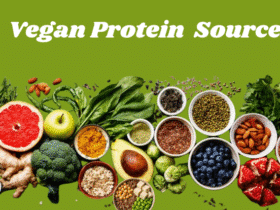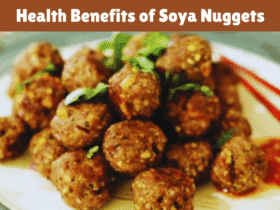Soya chaap, a versatile and protein-rich food, has gained popularity in recent years, especially among those seeking vegetarian or plant-based alternatives. But is it a healthy choice, or should it be consumed in moderation? Let’s dive into the nutrition facts to determine whether soya chaap is healthy or unhealthy.
The Good:
- Protein Powerhouse: Soya chaap is a fantastic source of plant-based protein, making it an excellent option for vegetarians and vegans. It provides essential amino acids that support muscle growth and repair.
- Low in Fat: Soya chaap is naturally low in saturated fats, which can be beneficial for heart health. It’s also cholesterol-free, making it suitable for those concerned about their cardiovascular well-being.
- Rich in Fiber: This food is loaded with dietary fiber, aiding in digestion and promoting a feeling of fullness, which can be beneficial for weight management.
- Minerals and Vitamins: Soya chaap contains essential vitamins and minerals, including iron, calcium, magnesium, and vitamin B12, which are essential for overall health.
Read Aslo: Veg Chicken and Chicken Substitutes
The Not-So-Good:
- Sodium Content: Some commercially prepared soya chaap products may have high sodium levels, which can contribute to hypertension and other health issues. Choosing low-sodium options or preparing it at home can mitigate this concern.
- Processed Varieties: Ready-made soya chaap products can sometimes contain additives, preservatives, or excessive oil, which can diminish their healthiness. It’s advisable to read labels carefully and opt for minimally processed versions or prepare it from scratch.
- Allergies: Soy allergies are relatively common. If you have a soy allergy, soya chaap is not a healthy choice for you.
Also Read: What is Plant Based Meat
Soya chaap can be a healthy addition to your diet, thanks to its high protein and fiber content, low saturated fat, and valuable vitamins and minerals. However, like any food, its healthiness depends on how it’s prepared and consumed. Opt for homemade versions or choose products with minimal additives to maximize its nutritional benefits.
In conclusion, soya chaap can certainly be part of a balanced and healthy diet, but be mindful of your preparation methods and ingredient choices to ensure you’re reaping its nutritional rewards without any unwanted additives or excess sodium.
Remember, the key to a healthy diet is variety and moderation, so enjoy soya chaap in conjunction with a diverse range of foods to achieve a well-rounded and nutritious diet.












Leave a Reply